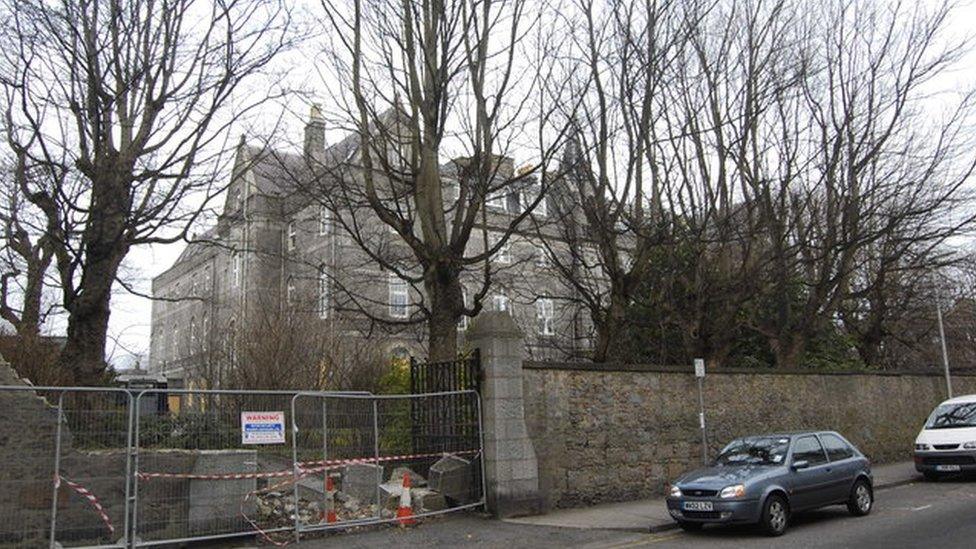Scottish Child Abuse Inquiry: Nazareth Houses were 'places of fear'
- Published
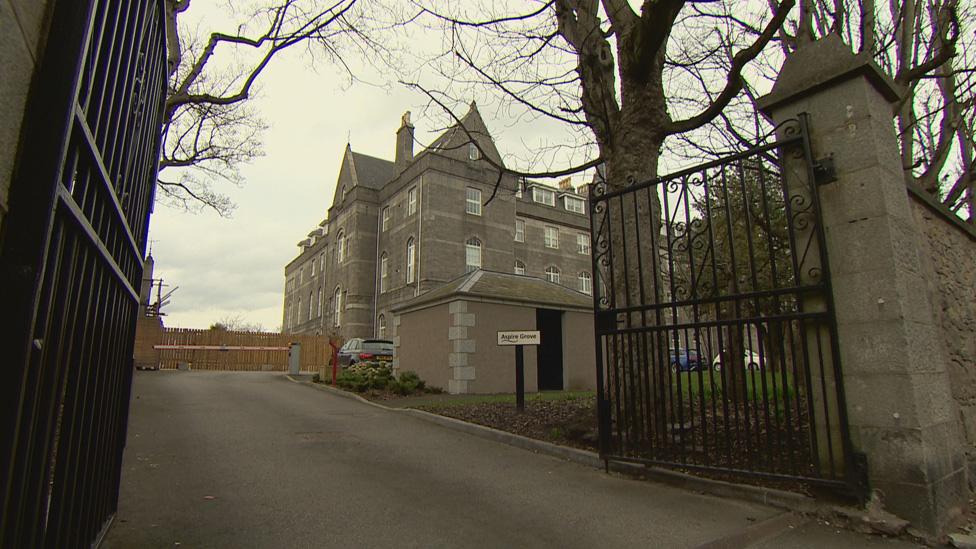
Some children at the Nazareth House orphanages in Scotland were subjected to sexual abuse of the "utmost depravity", the Scottish Child Abuse Inquiry has found.
Chairwoman Lady Smith said the children's homes were places of fear, hostility and confusion.
Youngsters were physically abused and emotionally degraded "with impunity".
The Sisters of Nazareth charity said it had apologised for any abuse that took place in its institutions.
Over 27 days last year, the inquiry heard evidence from former residents of four institutions in Aberdeen, Glasgow, Midlothian and Ayrshire.

'What happened was wrong'
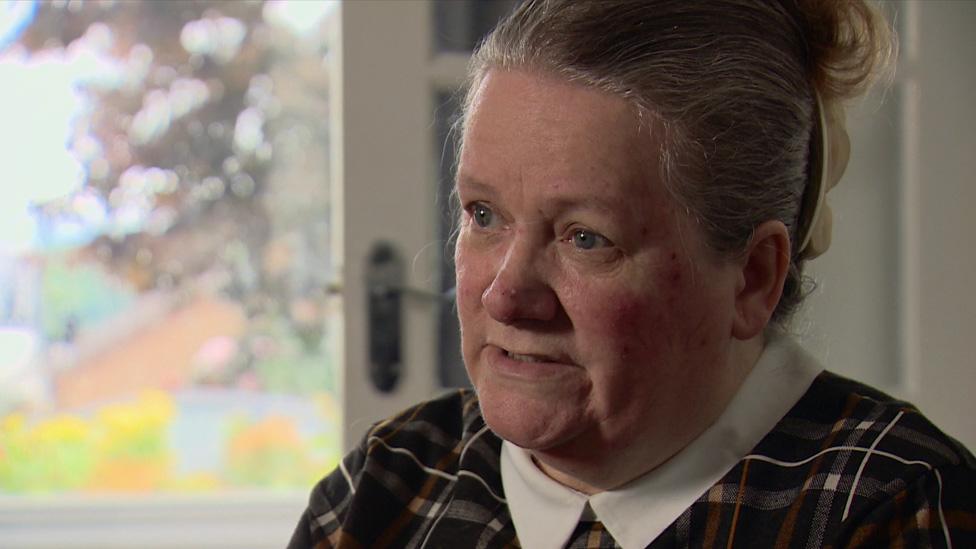
Helen Holland told the inquiry she suffered years of physical and emotional cruelty as a child at Nazareth House in Kilmarnock, where she was raped by a priest.
She welcomed the fact that Lady Smith had believed her evidence to the inquiry.
"It is almost as if she reached beyond me as an adult and spoke to the child inside, and said to that child: 'This wasn't your fault. This shouldn't have happened. What happened was wrong.'
"That in itself is massive."

The inquiry's case study report about the Nazareth Houses, external between 1933 and 1984 will form part of a wider investigation into the abuse of children in care in Scotland.
And it follows a similar publication on orphanages run by the Daughters of Charity of St Vincent de Paul, which found the homes were places of fear, threat and excessive discipline.
The abuse at the Nazareth Houses was similar in terms of nature and extent but the sexual abuse of children in the care of the Sisters of Nazareth "was of a particularly depraved nature", the latest report adds.
It says children were targeted by staff, volunteers, visitors, priests and nuns, and adults who were aware of the abuse took no action.
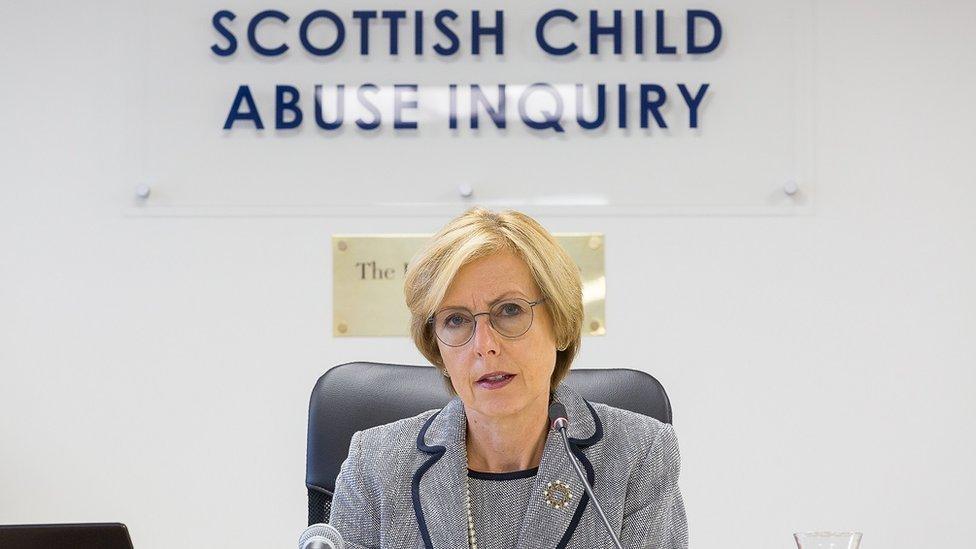
Lady Smith is chairing the inquiry
Lady Smith said: "The Nazareth Houses in Scotland were, for many children, places of fear, hostility and confusion, places where children were physically abused and emotionally degraded with impunity.
"There was sexual abuse of children which, in some instances, reached levels of the utmost depravity. Children in need of kind, warm, loving care and comfort did not find it. Children were deprived of compassion, dignity, care and comfort."
She also rejected all suggestions that witnesses colluded on "fictitious accounts" about their time in care.
The latest report outlines in detail the abuse endured by children at the homes, including:
Children were hit with belts, canes, sticks, broom handles, hairbrushes, shoes and wooden crucifixes. Carbolic soap was forced into their mouths, their heads banged together and they were made to kneel in corridors for long periods. For many children, this was part of daily life
Runways were beaten when they returned. Those who reported their abuse to police were not believed
Bed-wetters were humiliated. They were beaten, put into cold baths, made to wear wet sheets and called names by nuns
Children were force-fed
They had to queue for a bath in a state of undress and shared bathwater that was too hot or cold or dirty
Emotional abuse included humiliation, coercive control, insults, denigration and unjustified punishments. Children were locked in cupboards
They were routinely separated from their siblings and punished if they tried to make contact with them.
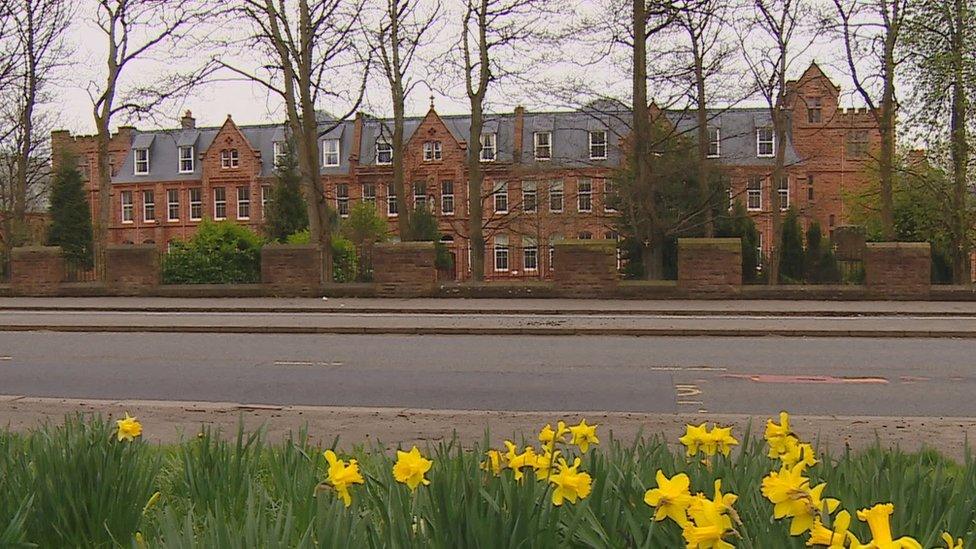
Nazareth House in Cardonald, Glasgow, closed in 1985
It also highlights how the nuns' vow of obedience meant they did not question existing practices.
Most of the sisters who gave evidence denied having seen abuse take place. The report concludes that they now find it hard to face up to the reality but "that does not mean that the abuse did not happen".
The Sisters of Nazareth charity, which no longer runs any residential services for children in the UK, said it was grateful to Lady Smith for her report.
In a statement, it said: "Her report details the suffering and abuse endured by some of the children in our homes and for that we are deeply ashamed.
"As we have said before, we apologize wholeheartedly and unreservedly to those who suffered any form of mistreatment."
The religious order also paid tribute to the courage of those survivors who testified to the inquiry.
The statement concluded: "From listening to their testimonies and reading the report we know how deeply the experiences of those years in care have affected their lives.
"We realise that no apology can do justice to their childhood experience or heal these lasting memories and we are profoundly sorry for having failed them at the time."
The independent inquiry, taking place in Edinburgh, continues.
- Published23 January 2019
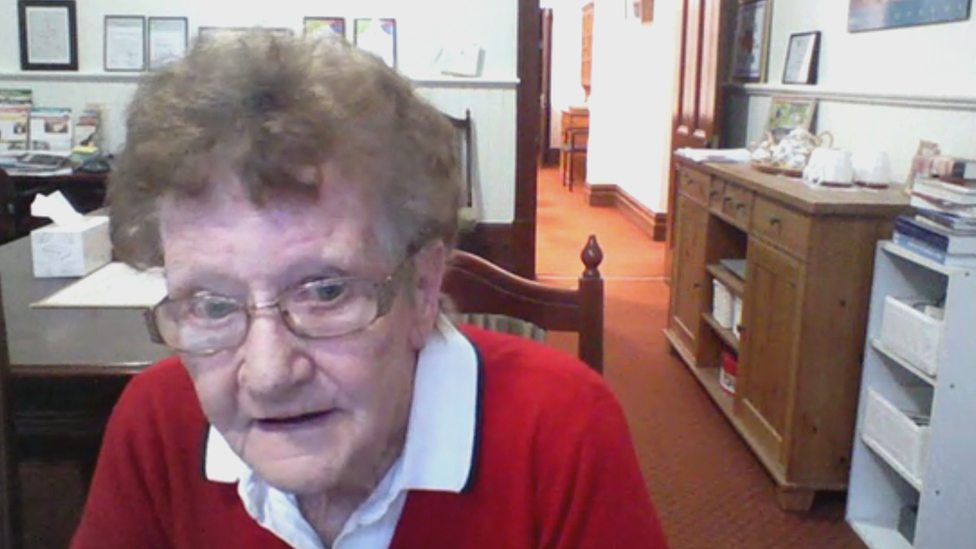
- Published26 June 2018
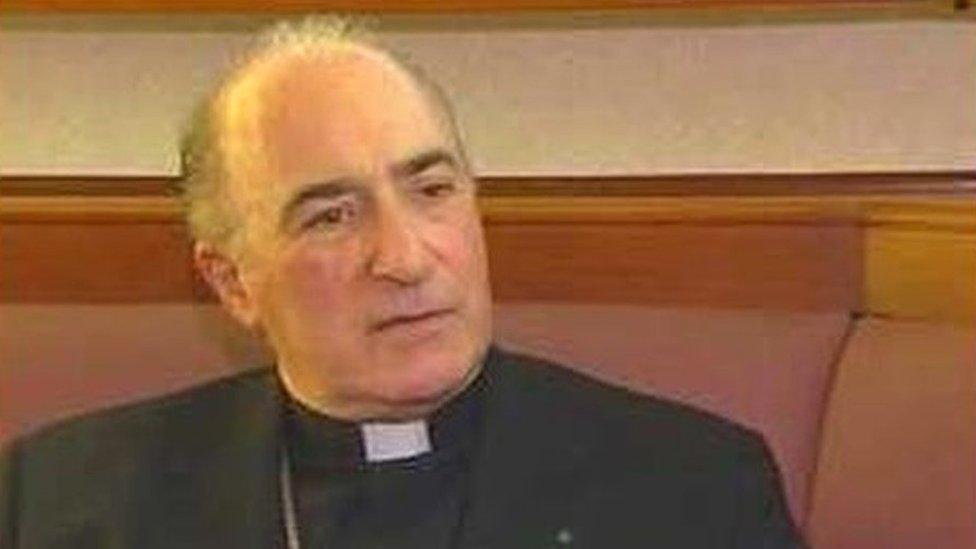
- Published31 May 2018
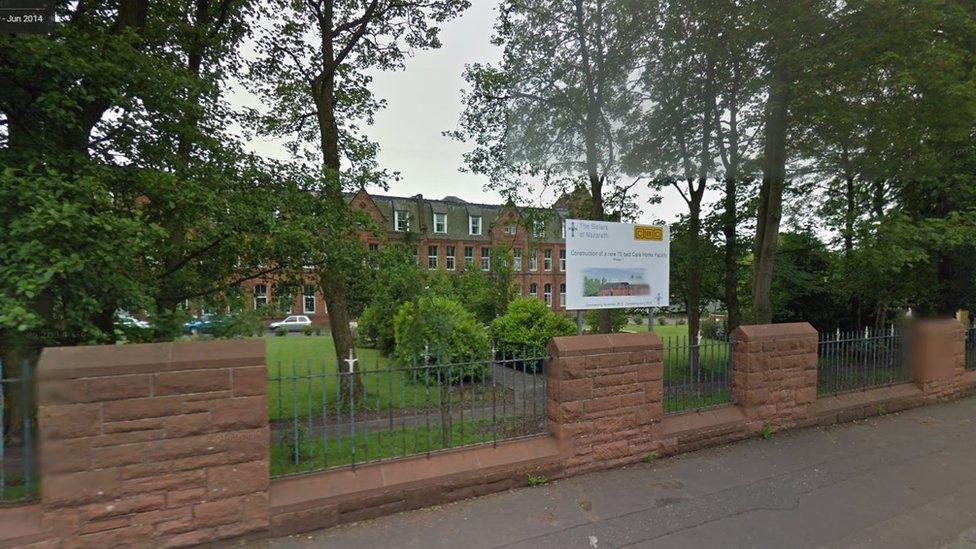
- Published31 May 2018
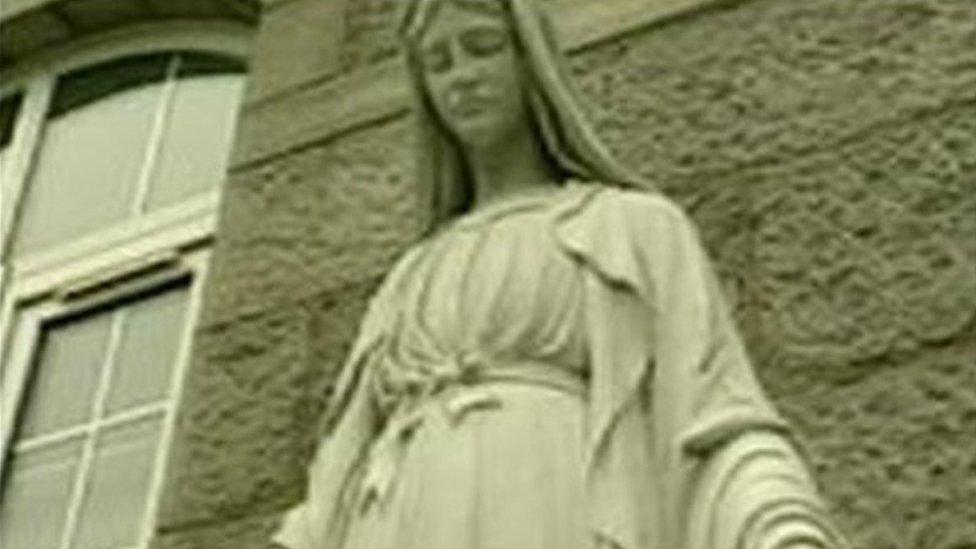
- Published22 May 2018
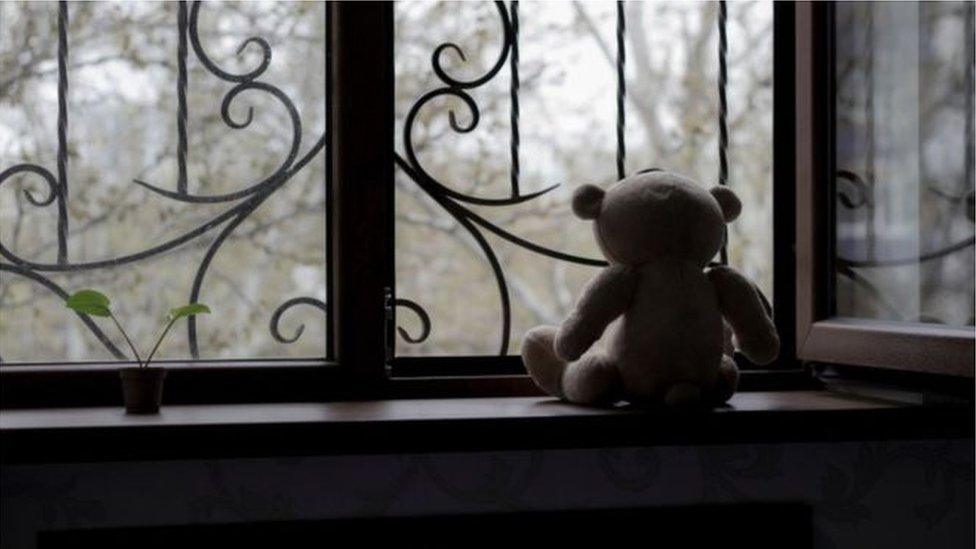
- Published27 April 2018
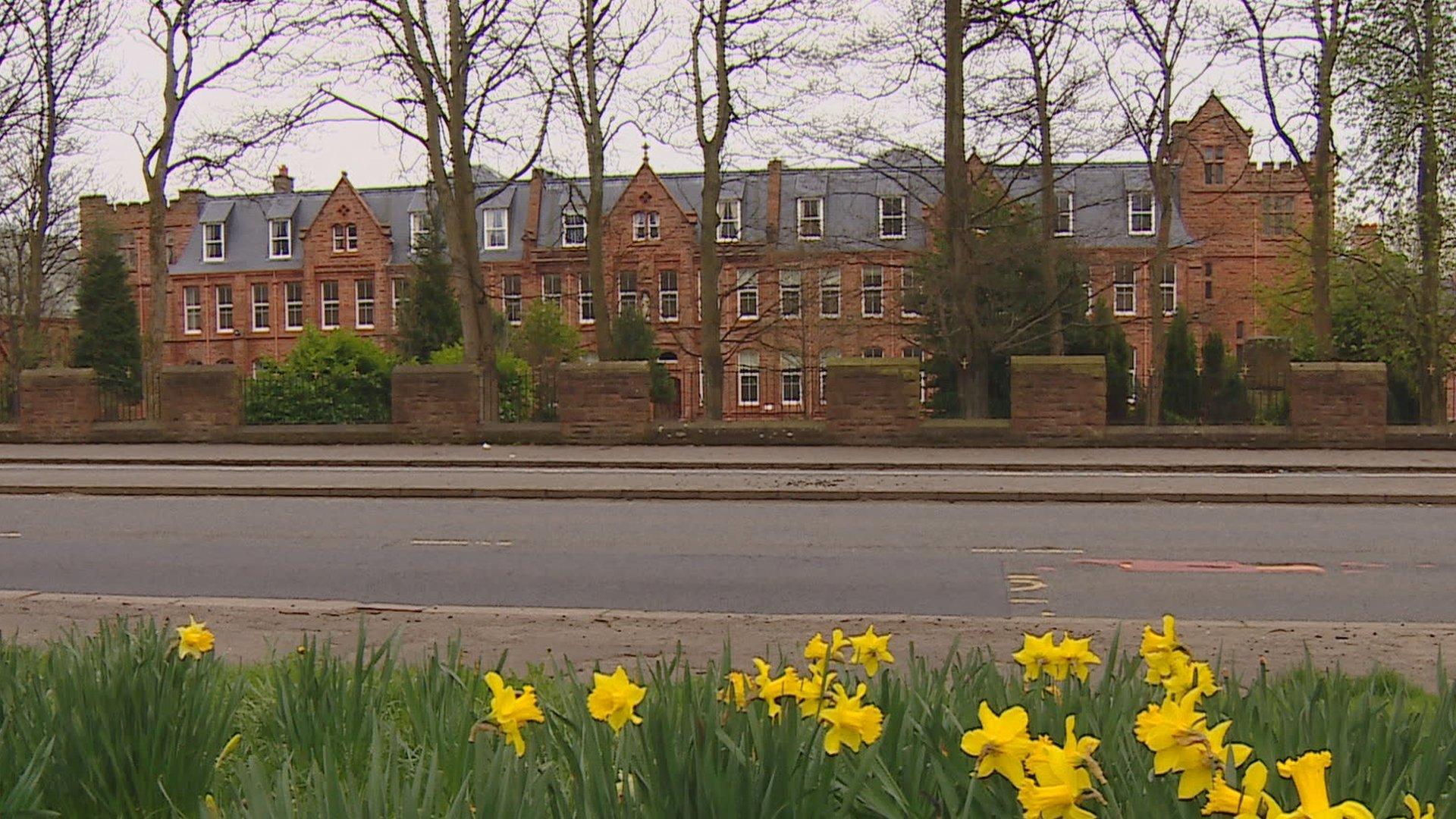
- Published25 April 2018
